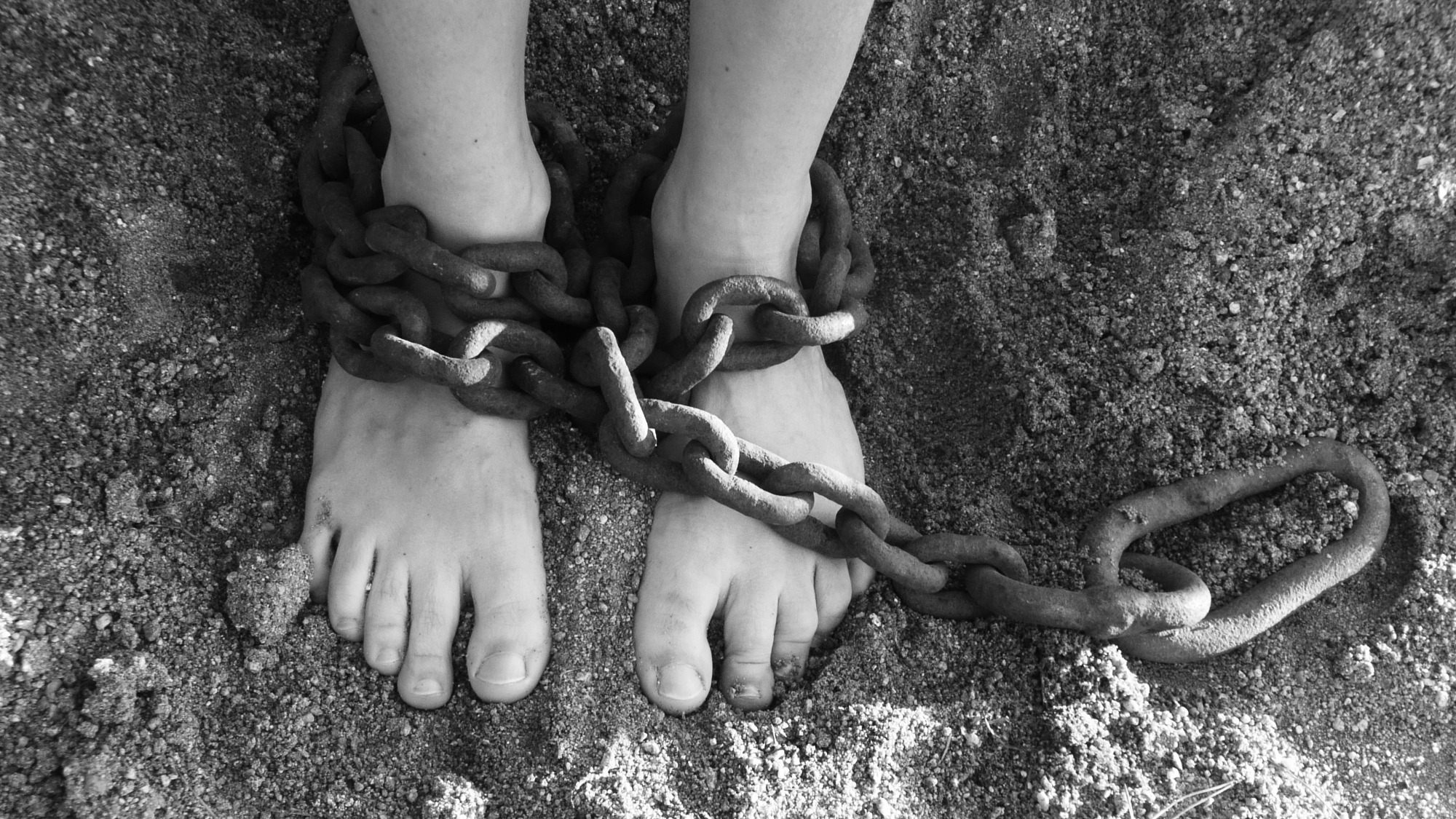The Gospel of Mark: Unclean Spirits and Demons
Just about everyone who has heard about Christianity and Jesus, whether or not they're Christians, has heard about Jesus casting out demons or healing the demon-possessed. In fact, demons in general are one of the most popular themes from Christianity. This is probably due in part to the fact that scripture doesn't say much about them.
Like with the heavenly messengers and other creatures described in visions throughout scripture, there's a lot of room for imagination when it comes to demons. That makes them perfect for pop-culture references and fantasy lore, and the fact that scripture talks about demons possessing people and making them do things sparks a world of possibilities and unanswered questions, but how are demons really presented in scripture?
Well, we don't have time to explore all of scripture here, but since I've been studying Mark, let's consider how demons are presented in the gospel of Mark, as a case study. What does Mark have to say about them? What sorts of stories do they show up in?
Demons in the Gospel of Mark
Mark uses two terms to talk about demons: demons (of course) and unclean spirits. These seem to be used interchangeably. There are 14 times in Mark when demons are part of the narrative, and some of those descriptions use both terms. Those demons are always described as possessing a person, either explicitly, like in the story of the Gerasene demoniac, or implicitly, like when it says they cast out demons (Cast out of what? Probably a person.).
Mark never describes the demons themselves, and he only describes symptoms of the possessions on three occasions.
- 1:26 - Convulsing and shouting
- 5:9-11 - Extreme strength, howling, and bruising oneself
- 9:17-25 - Convulsing, unable to speak, unable to hear
Most importantly, in the entire gospel of Mark, the demons are never the main emphasis of the stories. Casting out demons is often mentioned in passing along with other things that Jesus and the disciples were doing, such as in 1:39 where Jesus goes "throughout Galilee, proclaiming the message in their synagogues and casting out demons." No special emphasis is given to the demons, except in extended narratives, such as the Gerasene demoniac, and even then, the conversations are short and generally serve to set up the main interactions (e.g. Jesus and his disciples, Jesus and a parent, Jesus and the townsfolk, etc.).
Marcan Narratives Where Demons Are Present
On three occasions, Mark states explicitly that Jesus commanded the demons to be quiet about him. In 3:11-12, it doesn't even say that Jesus cast them out; it only says he tells them to be silent.
In the story of the Gerasene demoniac (Mark 5), Jesus casts out the demons (legion), but he also grants their request by allowing them to enter the herd of swine. In the story of the epileptic boy (more literally translated, according to what I've read: "moon-struck") (Mark 9), Jesus rushes to heal the boy when he sees a crowd coming together.
In other words, throughout the entire gospel of Mark, Jesus isn't shown as being particularly concerned with demons or demon possession. He doesn't fuss over them any more than he does any of the other healings or deeds of power. There are only two occasions when anyone makes a fuss about it, and it's always those who don't want to follow Jesus.
When Do People in Mark Fuss About Demons?
In Mark 3, the scribes accuse Jesus of casting out demons by the power of the ruler of demons. Think about that for a minute: they use the healing of a demon possessed person to accuse Jesus of being in league with demonic forces. They reject the justice of what Jesus has done in order to try to discredit Jesus. If their plan worked, they would have invalidated the person's healing in the eyes of the community.
If the community rejects Jesus as being in league with demons, they'll inevitably reject the person who was healed – you were "healed" by demonic forces. The event becomes inherently tainted. The scribes would rather make that person's life worse than accept that anything good has come from Jesus. That or they'd rather discredit Jesus than accept that something good has happened to this demoniac.
Similarly, in Mark 5, the townsfolk beg Jesus to leave when they hear what has happened. Understand: I'm not condemning them for this. For many of them, their livelihood just drowned in the sea because Jesus granted a demon's request, and that will surely impact the entire town. Even so, their decision will most likely tarnish the event in the minds of many; the demoniac becomes the man who was healed but also the man whose healing led to the deaths of thousands of their livestock.
Demonic Forces
These two stories illustrate the most common use of "demonic forces" that I see from Christians. Like the scribes and the townsfolk, people are more focused on what they consider to be "demonic" than even Jesus was. Jesus wasn't overly concerned about the demons. He was concerned about the people, about those who were suffering. He was concerned about healing and restoring. He was concerned about his mission, as well, but that part only required him to silence demons.
Why do people get so caught up in seeking out and "identifying" demons in the world? Why are people so concerned with identifying those who are "in league with demons?" Even Jesus's harshest responses to others had nothing to do with demons or demonic forces. They were against those who pushed justice aside and oppressed others in favor of their own comfort.
When we become fixated on "evil spiritual forces," we often fall into the same trap as the scribes and townsfolk. We diminish or dismiss the goodness in others' lives in order to validate our discomfort or hatred when we should really be rejoicing with others about what God is doing for them. Demons are interesting, because they're so mysterious and outside of our normal experiences, but the real focus should always be what God is doing in the world. That's where we find justice and mercy, healing and love.
A Better Concern
I'm not saying that we should be unconcerned with meta-physical things or discuss whether demons exist. What I am saying is that there are better concerns to have besides the presence of demons. What will we do about such things? I've heard the argument that we should distance ourselves from those "demonic forces" and the places where they're present, but the gospel writers show us that the same people who suffered from demon possession are the ones Jesus went to. They were among those who needed healing.
Now, I can't heal a person of demon possession any more than I can heal a person of cancer or even the common cold. What I can do is love that person the same as anyone else. And, before someone asks: no, I don't think everything that people in Jesus's day called demon possession was actually a supernatural thing. I also don't believe that every story about demon possession is actually just a story about mental illness. I'll talk about that more in another post. My point here is that Christians should stop using demons as an excuse to be fearful (or worse: hateful) toward others or say terrible, degrading things about people. At least as far as the gospel of Mark is concerned, that sort of attitude is counter to Jesus's perspective on demons and unclean spirits.
In my opinion, a far better concern is this: how do I love the people whose lives seem to be captive to things outside their control? How can I, like Jesus, appropriately focus on what can be done?



Comments
Post a Comment